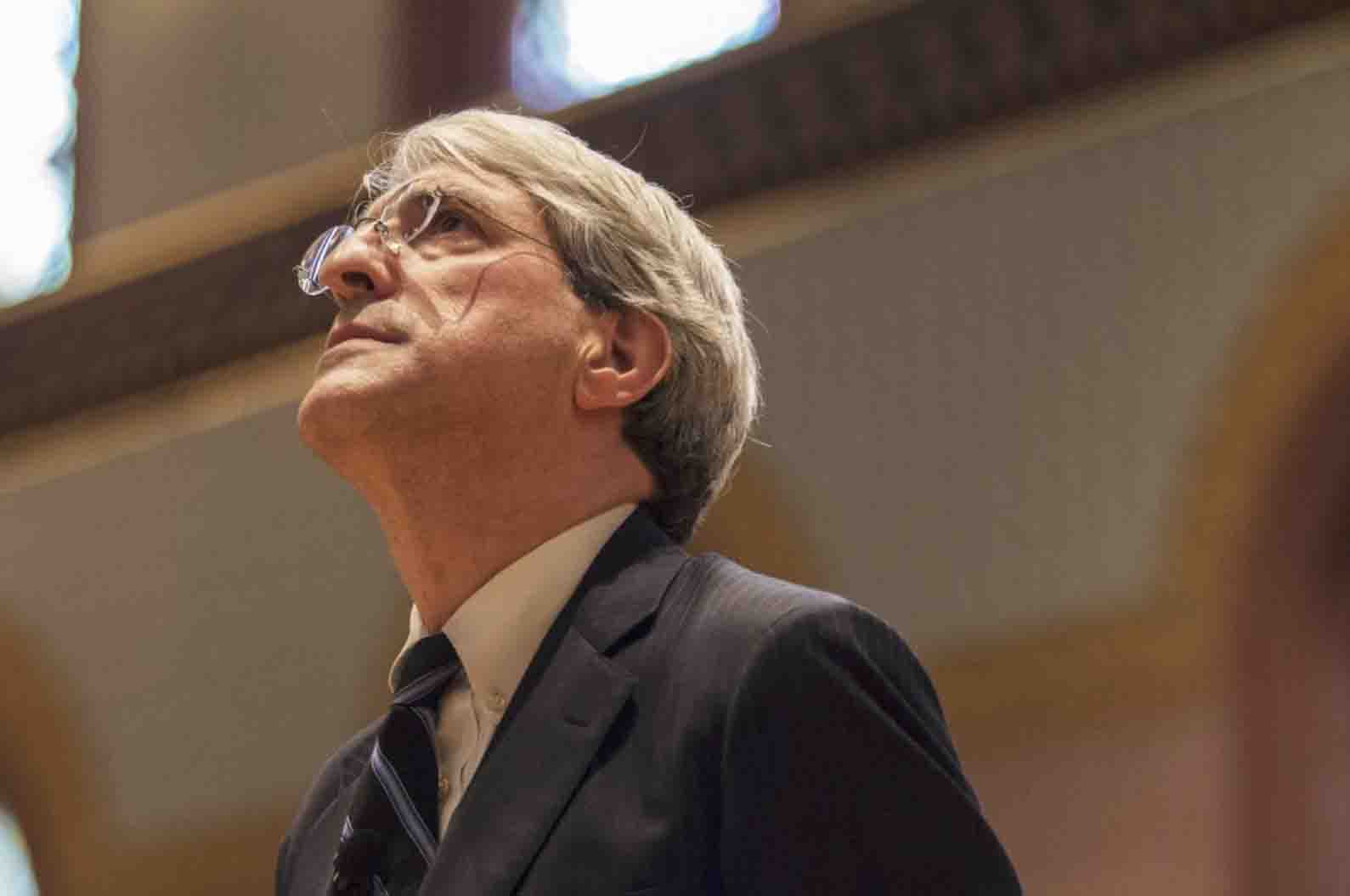
On behalf of the University and its partners at the charitable organization United Way of Greater New Haven, University President Peter Salovey kicked off the 2017–2018 Yale United Way fundraising campaign on Oct. 3. The campaign will raise money for the local community, which brings the community together around the Greater New Haven area to tackle issues of health, education and financial stability.
Last year’s campaign generated $1.3 million for the nonprofit, and campaign organizers say they hope to raise $1.35 million this year. The funds will come primarily from donations from faculty members and staff, but other members of the Yale community can also donate. Addressing a crowd of faculty and staff inside the Beinecke Rare Book and Manuscript Library, Salovey announced that the theme for this year’s campaign will be “Yale in Action,” and spoke about Yale and New Haven’s long shared history to emphasize the University’s commitment to public service.
“[My wife] and I believe strongly that by working together through United Way, we will cre ate lasting and meaningful change within our community,” Salovey said in a letter sent to the Yale community the following day.
By mobilizing resources and volunteers, United Way serves vulnerable populations to meet both immediate and long-term needs.
The nonprofit’s website features several success stories from residents of the Greater New Haven area. On the streets for three years, Hamden resident John Munsey overcame drug and physical abuse with United Way’s help and, on his 35th birthday, received the keys to his own apartment.
Homeless with a baby just a few years ago, 33-year-old Kristen Calderon similarly benefited from the nonprofit’s employment and financial assistance services. According to United Way, Munsey and Calderon are just two of nearly 220 chronically homeless people for whom the organization helped find housing last year.
The services with which the nonprofit helps connect residents extend beyond employment assistance. Some initiatives the nonprofit supports have paved the way for students at New Haven’s Common Ground High School to benefit from afterschool science, technology, engineering and mathematics programs. Others focus on food accessibility and trauma recovery.
Recent state funding cuts and general uncertainty about the state budget process have forced the school system and community organizations across the municipalities to reevaluate how they allocate resources.
“With programs being frozen and cut, private philanthropy is more important than ever,” said Sue Davison, senior director of resource development at United Way. “Donors to the Yale in Action campaign can be certain that their donations are going to these programs and organizations that are facing uncertain futures.”
Representatives from across the University are responsible for drumming up enthusiasm for the campaign in their respective departments and schools, and they plan on making it as convenient as possible for donors to help the campaign reach its goal of $1.35 million. Consistent with the theme, the organizing committee has put together a variety of events for donors to look forward to, from wine auctions to volleyball tournaments to cook-offs. Next month, the medical school and the Yale Police Department will partner to host the “5K Health and Safety Run.” Davison added that the purpose was to give participants many different opportunities to take action and “have a lot of fun doing it.”
With new strategies for raising funds in hand, campaign organizers are confident that this year’s campaign will build on the successes of previous years. The $1.3 million raised during the 2016–2017 campaign paid for 310,239 healthy meals across 19 community providers, 2,527 sessions for public school students with the New Haven Trauma Coalition and free income tax preparation for more than 4,500 low-income families.
Janet Lindner, Yale’s vice president for human resources and administration and the chair of the board of directors for the United Way of Greater New Haven, credits the results of last year’s campaign to the hundreds of small payroll deductions Yale employees took last year. Yale employees can elect to donate a tax-deductible portion of their salary to the campaign. In his message, Salovey announced that once again Yale will match up to $100,000 in funds for new or increased faculty and staff contributions made through payroll deductions.
“Deeply engaged Yale volunteers run the program, and over the years, they’ve developed unique approaches by department so that the campaign resonates throughout the University,” Lindner said. “Strong support from the leaders of Yale also makes a difference, as people see that Peter Salovey and others contribute money, but also time.”
According to Human Resources Generalist Abby Goldblatt, one of three co-chairs in charge of spearheading the campus movement, the number of faculty and staff champions has risen to almost 150 from 100 since the campaign began three weeks ago.
Davison also attributes the success of Yale and United Way’s more than 30-year-old partnership to the trust that Yale community members have in United Way to find innovative solutions to daunting social crises.
“We’ve done the research,” Davison said. “Our donors trust that we know what New Haven’s problems are, that we listen.”
United Way estimates that in New Haven County, 45 percent of the population lives in poverty.
Julianna Lai | julianna.lai@yale.edu
Correction, Oct. 26: A previous version of the article incorrectly stated that Janet Lindner is the acting chair of the board of directors for the United Way of Greater New Haven. She is in fact the chair of the board of directors.







